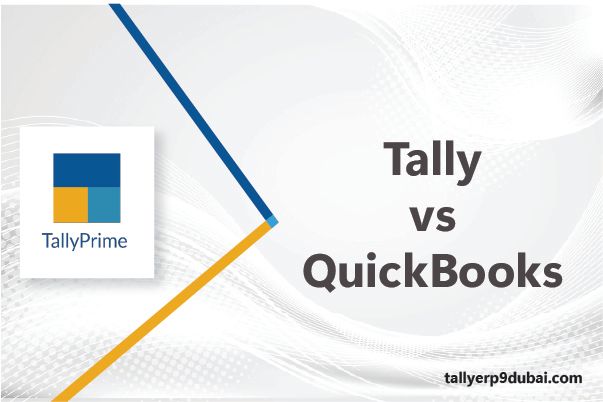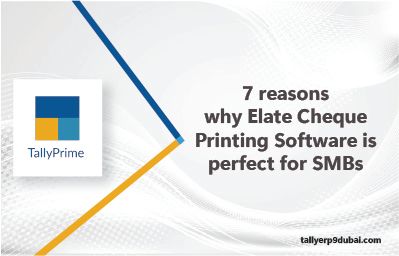
Admin
2023-06-06

Managing finances effectively is crucial for the success of any business. In the UAE, two popular accounting software options are Tally and QuickBooks. While both offer robust features and functionality, they have distinct differences that cater to different business needs. In this blog post, we will compare Tally and QuickBooks to help you make an informed decision about which accounting software is best suited for your business in the UAE.
User-Friendliness:
When it comes to user-friendliness, QuickBooks takes the lead. It is known for its intuitive and user-friendly interface, making it easy for even non-accounting professionals to navigate. QuickBooks offers a user-friendly dashboard with clear navigation and simple workflows, making tasks such as invoicing, expense tracking, and financial reporting a breeze. Tally, while feature-rich, may have a steeper learning curve and may require some accounting knowledge to use effectively.
Features and Functionality:
Both Tally and QuickBooks offer a wide range of features to efficiently manage accounting processes. Tally is a comprehensive accounting software that provides extensive capabilities for financial accounting, inventory management, taxation, payroll, and more. It is particularly well-suited for businesses with complex accounting requirements, such as those dealing with multiple currencies, branches, or manufacturing operations.
QuickBooks, on the other hand, focuses on providing a user-friendly experience while offering essential accounting features. It covers invoicing, expense tracking, bank reconciliation, financial reporting, and payroll management. QuickBooks is an ideal choice for small to medium-sized businesses that require a straightforward and user-friendly accounting solution.
Tax Compliance:
Tax compliance is a critical aspect of accounting software, especially in the UAE, where tax regulations are stringent. Tally has a strong reputation for tax compliance and is widely used in the UAE market. It supports VAT calculation, filing, and reporting, making it suitable for businesses operating in the UAE.
QuickBooks also offers robust tax compliance features, including VAT tracking and reporting. It allows users to configure tax rates, apply them to transactions, and generate tax reports for easy filing. QuickBooks stays up to date with UAE tax regulations, ensuring businesses can remain compliant.
Customization and Integration:
is highly customizable, allowing businesses to tailor the software to their specific requirements. It offers a flexible framework that can be customized extensively to adapt to various industry verticals and unique business needs. Tally also provides integration capabilities with other software applications, enabling seamless data flow between different systems.
QuickBooks offers a range of integrations with third-party applications, allowing businesses to connect their accounting software with other essential tools. It integrates with popular payment gateways, e-commerce platforms, CRM systems, and more. While it may not be as customizable as Tally, QuickBooks provides ample integration options to streamline business operations.
Pricing:
Pricing is an important consideration when selecting accounting software. Tally follows a traditional licensing model, where businesses purchase a license based on the number of users and required features. The pricing structure can be cost-effective for businesses with a large user base and complex requirements, but it may not be as affordable for small businesses.
QuickBooks operates on a subscription-based pricing model, offering various plans to suit different business sizes and needs. This flexibility makes QuickBooks a more accessible option for startups and small to medium-sized businesses with limited resources.
Conclusion:
Both Tally and QuickBooks are popular accounting software options in the UAE, each with its strengths and advantages. Tally is a comprehensive solution suitable for businesses with complex accounting needs, while QuickBooks excels in user-friendliness and affordability.
When choosing between Tally and QuickBooks, consider factors such as the size and complexity of your business, your familiarity with accounting software, and your specific accounting and tax compliance requirements. By evaluating these factors, you can make an informed decision and select the accounting software that best fits your business needs in the UAE.
Latest News
From Our blog and Event fanpage



